QuestionI've had my Russian Tort a little over a year now. She's about 3 years old and is 4 1/2 inches long. Her indoor pen has a substrate of half play sand and half "Bed a Beast". Her outdoor pen is about 8 feet by 10 feet. There's bermuda grass growing throughout it. She has a shelter and a large soaking dish. I only put her in the outdoor pen if it is mid 70's or warmer and then bring her back in when the sun goes down. I live on the central coast and am near the ocean, so it cools down significantly at night. I give her a variety of greens. I mix & rotate between the following: arugala, mustard greens, red & green leaf lettuce, collard greens, endive, escarole, and kale for the most part. Last fall I didn't allow her to hibernate because she wasn't healthy enough. She had lost some weight and was dehydrated. The vet put her on some antibiotics and gave her some subQ fluids. She seemed to bounce back from this and for the past few months has been eating well and seemed her normal self. I've noticed in the past couple of weeks that her eating volume has decreased significantly to the point where she's barely eating at all anymore. I've also noticed in the past couple of weeks that she's been flaking on some areas of her head and legs. Today when I put her in her outdoor pen, I noticed that it's more noticeable. She's become more quiet lately and will burrow down in her substrate and stay there most of the day. I checked on her a little while when she was outside and she was walking around in her pen and looking around, so this seems a good sign. She doesn't appear to be sick, her eyes and nostrils are clear. We went through a real hot spell here a couple of weeks ago where the temps hit the 100's. It lasted about 4-5 days. Her symptoms seem more evident since this hot spell. I'm wondering if I should be concerned or just let her be. The trips to the vet and the medications in the Fall really seemed to stress her out and she has been more "shy" since then. I didn't like how they handled her and she didn't seem to like it either; they were pretty rough with her. I don't want to put her through that again if it's not necessary. She's the first tortoise I've had. I've had several other reptiles and amphibians throughout the years, particularly snakes. I know that snakes go through a molting stage where they withdraw and don't eat until they've shed. Do tortoises go through a similar phase? Any advice would be appreciated. Thank you very much!
AnswerRussians are kind of tricky- there is little agreement on keeping them healthy in the long run. They do well for a few years for many people, then start to 'fail to thrive'.
I SUSPECT, but do not know, that it is dehydrated, and possibly thermally stressed (heat exhaustion). A lot of evidence suggests that this species likes cooler temps (65-80 range) and does not do well in warmer weather unless it can burrow down and aestivate. It also seems to like to spend much of its day in shady, moister places like burrows, thick plantings, etc.
Since much of its diet in the wild is drier and more fiberous, she might also have an upset tummy from the wetter, softer foods she has been getting instead of her more natural hays, wild grasses, stems, flowers, cacti, etc. Also be aware that the mix you mention is a little light in calcium overall which can add to any other issues.
In the wild, these guys brumate (reptilian hibernation) and aestivate much of the year. It may be that without long hibernations, they just cannot handle the long 'awake' periods- but this is so far just a theory.
I'd like to point you to some Russian keepers with more experience than I have...
- http://www.tortoisetrust.org
- http://www.tortoiseforum.org
- http://www.russiantortoise.org
Good luck!

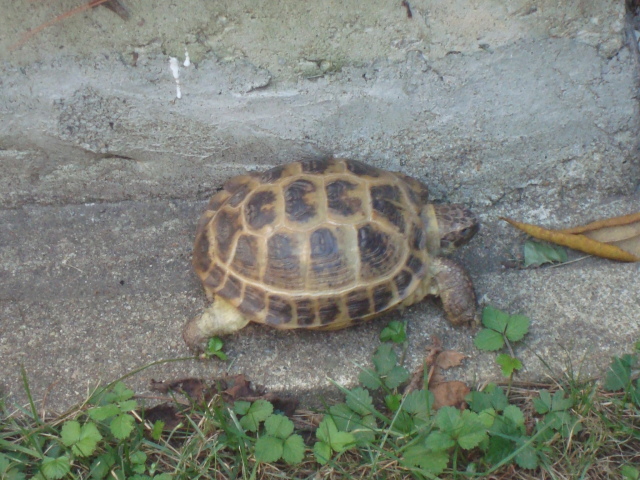 Runny left eye on young Russian
QuestionQUESTION: We just got our Russion Tortoise less
Runny left eye on young Russian
QuestionQUESTION: We just got our Russion Tortoise less
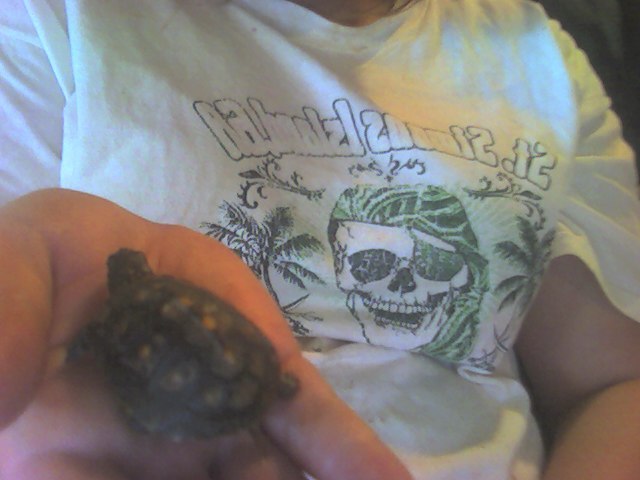 Tortoise or Turtle?
Question
The turtle or tortoise
I recently found a baby
Tortoise or Turtle?
Question
The turtle or tortoise
I recently found a baby
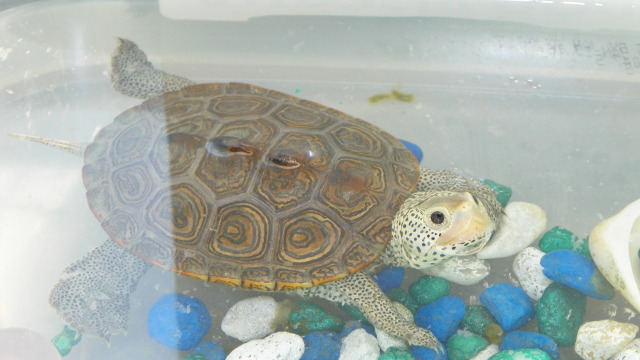 What species of turtle is this?
QuestionOur turtle
QUESTION: We found this littl
What species of turtle is this?
QuestionOur turtle
QUESTION: We found this littl
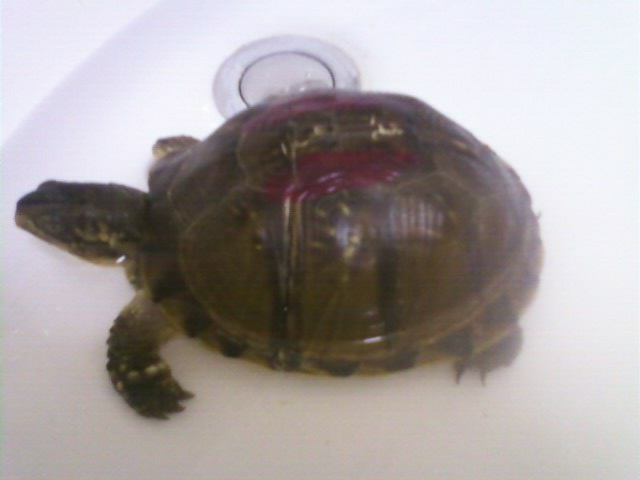 green turtle
Question
THIS TURTLE WAS A GIVE
What kind of turtle is
green turtle
Question
THIS TURTLE WAS A GIVE
What kind of turtle is
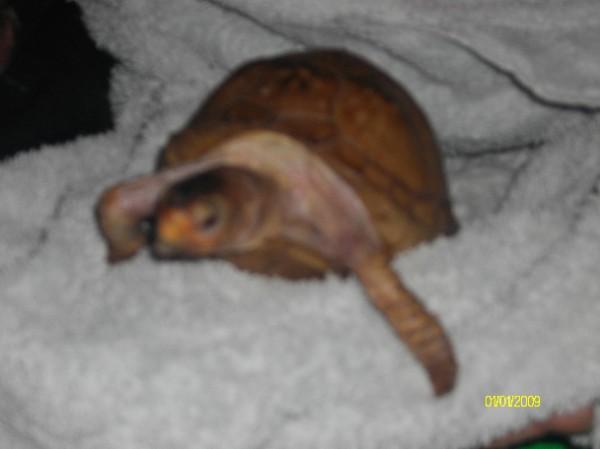 what kind of turtle/tortoise do i have?
Question
my turtle
i have no idea what kind of turtle/t
what kind of turtle/tortoise do i have?
Question
my turtle
i have no idea what kind of turtle/t